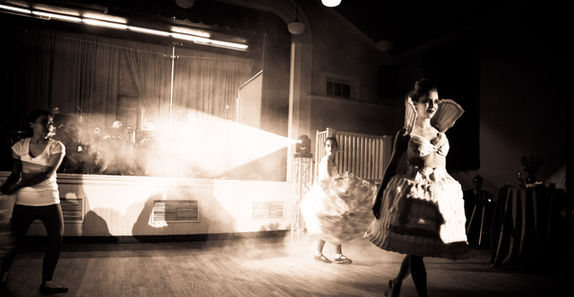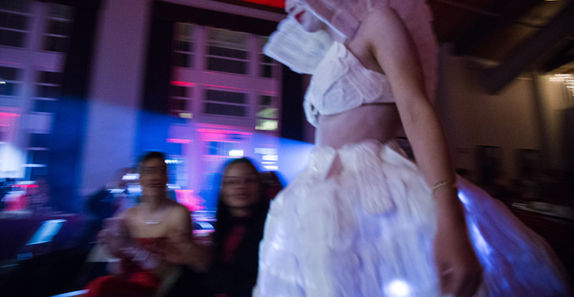GLOBAL WORK
“The true revolutionary is guided by great feelings of love.”
—Che Guevara

Healing as Prevention: Mandating Psychosocial Support in Transitional Justice Frameworks
This research advocates for the formal integration of mental health and psychosocial support (MHPSS) into transitional justice frameworks. Despite growing recognition, MHPSS remains fragmented, underfunded, and excluded from formal mechanisms—perpetuating harm and delaying recovery. Grounded in direct experience with survivors of war, genocide, and sexual violence during conflict—as well as the humanitarian aid workers who support them—this project underscores the need for culturally grounded, context-sensitive strategies. MHPSS must be understood not as an optional add-on, but as a foundational pillar of justice, healing, and the long-term prevention of future violence.

Genocide Education as Transformative Justice Against Denial: A Mainstreaming Case Study
Anchored in Adorno’s injunction that “Auschwitz never happen again,” this case study shows how mainstreaming genocide education can counter denial and foster transformative justice. The author recounts redesigning courses amid the 2020 convergence of George Floyd’s murder and the pandemic, using the moment’s raw inequities as catalytic teachable context.
Drawing on decolonization theory, Emdin’s reality pedagogy, Weil’s solutionary curriculum, and Berg & Seeber’s slowness, the framework dissolves colonial hierarchies, pairs teacher and students as co-learners, and integrates real-time events from local to global. By challenging “controlled perceptions,” the model cultivates ethical agency and sustained atrocity prevention across disciplines.

Coffee Klatch is a community-led psychosocial support program co-created by Kurdish community health worker Noor Al-Zahawe and Lorrie Lynn King. Together, we built a radical, culturally-rooted space for Arabic-speaking refugee women in Clarkston, GA—survivors of genocide, war, and sexual violence.
Key highlights:
-
Co-created by a Kurdish community leader and a genocide scholar with a public health lens
-
Rooted in culture — blending psychosocial support with Arab, Muslim, and Kurdish traditions
-
Driven by participants — women shaped the program, from mobile tech to trauma support groups
-
Tangible results — increased well-being, full access to healthcare, employment, and leadership
-
Recognized by CDC as a best practice in refugee resettlement programming
-
Proof of power — when refugee women lead, healing happens on their own terms

50 Cents. Period. was a global initiative I founded to address menstrual inequity through comprehensive, community-driven systems of menstrual hygiene management. Rooted in the capabilities approach of Martha Nussbaum and the freedom-centered development framework of Amartya Sen, the work integrated locally sourced materials, water and sanitation infrastructure, culturally specific education, and reproductive health services.
Grounded in Community-Led Total Sanitation (CLTS) methodology, programs were designed with—not for—communities, and tailored to local culture, context, and need. In one project in Nepal, we reduced school absenteeism by 95% over three years. The initiative operated across five countries and multiple U.S. refugee settings, centering dignity, agency, and access.
Key highlights:
-
Authored The Women’s Circle and Girl Power—context-specific reproductive and sexual health education curricula used by global partners and every refugee resettlement agency in the state of Georgia.
-
Built strategic partnerships with Procter & Gamble, United Way, and grassroots organizations to provide a six-month supply of menstrual products to every menstruator age 12 and up resettled in Georgia.
-
Named a CNN Top Ten Inspiring Woman of 2014, received a Georgia State House Resolution of Honor, and appointed the first U.S. Ambassador for Global Menstrual Hygiene Day.
-
Featured by CNN, NPR, The Guardian, and recognized by the CDC and multiple government bodies for leadership in menstrual equity and reproductive justice.
Co-created Coffee Klatch with Kurdish and Arabic-speaking refugee women—recognized by the CDC as a best practice in refugee resettlement psychosocial programming (MHPSS).

Jewish Gangsterism
This on-going passion project is titled “Jewish Problems, Jewish Fists”: The Case for Including Jewish Gangsters in the Historiography of America’s Struggle Against Fascism, Lessons Learned 1919-Present
I explore the untold story of Jewish gangsters who didn’t just resist fascism—they hunted it down. As Nazism crept into 1930s America, with Nazi Bund rallies in U.S. cities and antisemitic movements backed by elites, men like Meyer Lansky, Bugsy Siegel, and Moshe “The Hammer” Goldberg took the fight to the streets. Informed by Jewish teachings to pursue justice—tzedek, tzedek tirdof—they tracked Nazi operatives, dismantled Bund networks, and fed intelligence to the Office of Strategic Services (OSS), the precursor to the CIA. This research isn’t nostalgia—it’s a reckoning. In today’s slide toward authoritarianism, the question isn’t if we fight.
It’s how.
This work was presented at the 56th Annual Association for Jewish Studies Conference in December 2024.
Want to know more? Presentations and lectures on this research are available for classrooms, congregations, and civic groups. This is the untold story of Jewish gangsters who took on American fascists in the 1930s—and didn’t stop after the war. They funded post war Nazi hunting with Simon Wiesenthal and used underground networks to help Jews escape Europe while waiting for U.S. immigration after Allied liberation. This talk dives deep into resistance, identity, and what it means to fight for justice—when the system won’t. History doesn’t repeat itself. It warns us. Let's listen—and act.

Indigenous Initiatives
From the Dakotas to the Southwest, the Southeast to Alaska—and across forest preserves in India and farmlands in Central America—I’ve worked alongside Indigenous communities to defend sovereignty, rebuild infrastructure, and protect dignity in the face of systems built to erase them. In the U.S. context, this spanned work with 15 Indigenous Nations, including programs in disaster response, climate adaptation, and suicide prevention.
I marched in the Indigenous Peoples March in 2019, and served as a technical advisor on a national water infrastructure study culminating in a Congressional briefing, which revealed that Indigenous households are 19 times more likely to lack access to clean water and sanitation. These programs were rooted in tribal sovereignty, Land Back, and decolonial and anti-colonial praxis. It’s about showing up, listening, getting out of the way, and redirecting resources to the First Peoples of these lands. This work is a recognition of stolen land and fractured treaties—a commitment to remaking systems and participating in a reparative quest that is long overdue.
Key highlights:
-
India (2010–2017):
-
Mobile community health programs with the Chenchu tribe in Andhra Pradesh and Telangana (Seva Bharathi partnership).
-
WASH infrastructure and menstrual hygiene management with Banjara Lambadi communities.
-
Grant-funded suicide relief and mitigation in farmer-affected communities of North Maharashtra.
-
-
United States (2016–2020):
-
Developed and managed a $4M grant portfolio spanning 15 Native nations, rooted in Native sovereignty and community-led development.
-
Climate disaster response in Alaska: supported Chignik Villages (failed salmon harvest) and Newtok Village relocation (permafrost melt and shore erosion), with PASS sanitation systems and climate-adapted WASH infrastructure.
-
Supported WASH infrastructure upgrades on Navajo, Hopi, Choctaw, Chickasaw, Seminole, and Oglala Sioux lands, including response to the 2019 bomb cyclones and political retaliation from South Dakota's governor.
-
Funded Dream Warriors Collective to implement a national youth suicide prevention program rooted in Native arts and activism.
-
COVID-19 emergency response: food, water, DV hotline support across Navajo, Hopi, and White Mountain Apache communities.
-
Food sovereignty investments: traditional agriculture, foraging classes, elder feeding programs with Standing Rock Tribe and Sitting Bull College.
-
Supported transitional housing and extended kinship care for orphaned youth under Lakota “woblenica” model.
-
Backed land reclamation and eco-village development for Muscogee Creek Tribe in Alabama.
-
Provided stipends for youth from five OK-based tribes to attend the Indigenous Peoples March (2019) in D.C.
-
Funded language and cultural immersion programs across Alaska, California, Florida, Oklahoma, Alabama, and the Four Corners region.
-
Supported the historic land return to the Wyandotte Nation of land held in trust by UMC for 150 years.
-
-
Central & South America (2012–2020):
-
Partnered with Mayan (Guatemala) and Miskito (Nicaragua) communities to implement community and school-based WASH programs, including menstrual hygiene management.
-
Advanced food security through agriculture initiatives, school gardens, nurseries, farmer cooperatives, and field schools.
-
Supported sexual violence recovery and mitigation in agricultural communities.
-
Current Indigenous Project:
The Enduring Legacy of Injustice: A Preliminary Comparative Study of Health and Social Outcomes in the Beta Israel and U.S. Indigenous Populations
This preliminary comparative study explores the enduring effects of historical injustice on the health and social outcomes of Beta Israel (Ethiopian Jews in Israel) and Indigenous peoples of the United States. Despite differing geographies and histories, both groups share experiences of displacement, cultural erasure, and systemic inequities. Analyzing key indicators—such as healthcare access, chronic disease prevalence, education, and incarceration—the research examines how trauma, identity, and resilience intersect. It also considers the role of culturally grounded interventions in promoting well-being. The findings aim to inform equity-driven policies that address the long-term consequences of marginalization and support sustainable, community-based healing.

Tattooed Talmud is my mixed-methods study exploring how communal ritual, text study, and dual narrative programming impact the psychosocial well-being and political consciousness of Jews across ideological and denominational divides in North America and Israel.
This work is deeply personal—October 7th is not only a geopolitical rupture, it’s also my birthday. I’m asking how we, as Jews, shape narratives about each other—and about Palestinian liberation. Through surveys, interviews, and archival data, I examine what fosters solidarity, what fractures it, and how our shared traditions might offer repair, or reveal the depth of our dissonance.
























